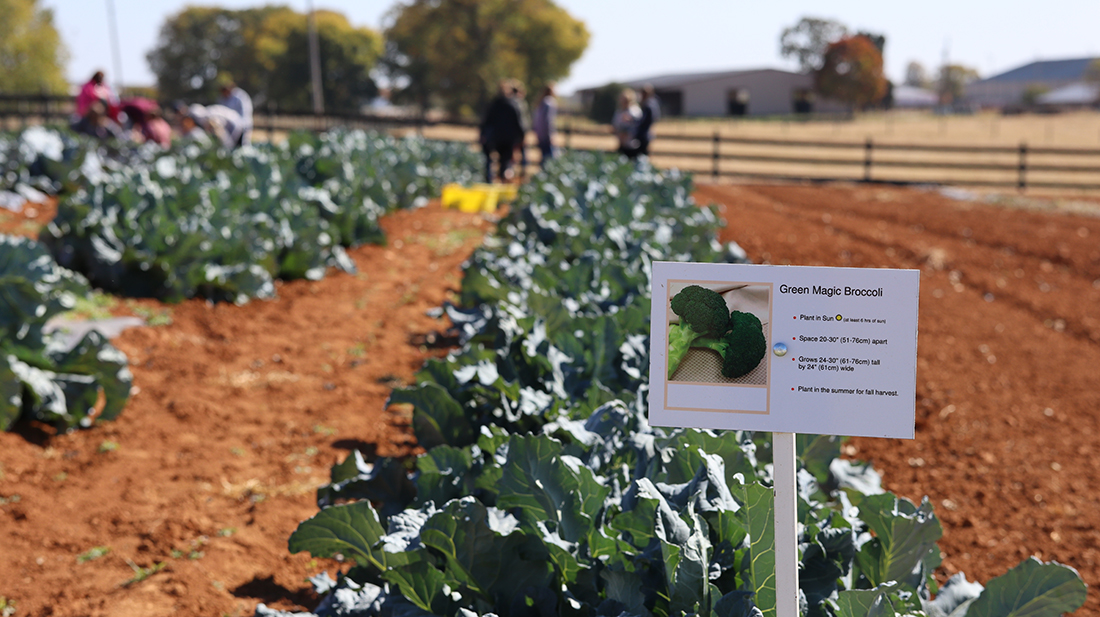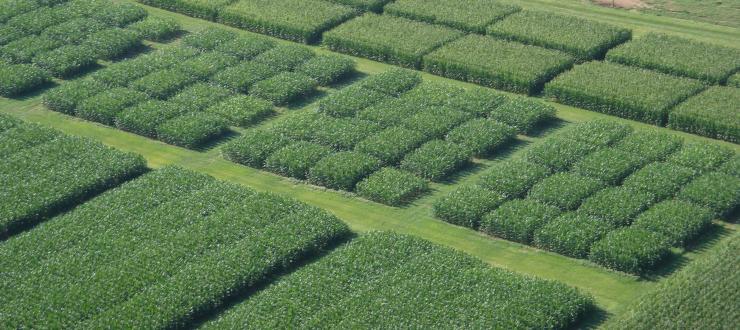WKU Crop Unit

Row crops are planted on approximately 300 acres with most in a corn and soybean rotation. A small portion of corn acreage is chopped for silage and wheat is occasionally grown for research or silage. Approximately 75% of the row crop acreage is part of agronomic research. The majority of this research is larger strip trial plots but smaller, replicated plot research does take place each year.
The WKU AREC consistently works with around ten different industry partners to screen new crop germplasm, crop protection products, and fertility programs.
BASF, Syngenta, Pioneer, Bayer, and Wheat Tech are some of our longest-running and most consistent research cooperators. Companies supply inputs for research plots while AREC plants, manages, harvests, and collects data. In addition to cooperating with industry partners, each year AREC holds a public trial where companies can submit corn and soybean cultivars to be independently evaluated by AREC faculty and staff.
Forage
The forage we produce at the WKU Farm is used to feed our livestock and to sell for additional income. Forage found at AREC includes alfalfa, orchardgrass, and mixed grass hay. Areas of grass hay production are also utilized for grazing. Alfalfa is cut every 28 days and will average about five cuttings per year. In high-production seasons, grass hay will be cut two or three times.
Silage equipment was purchased in 2021 and has chopped corn, wheat, alfalfa, and ryegrass to feed the dairy and beef herds.


